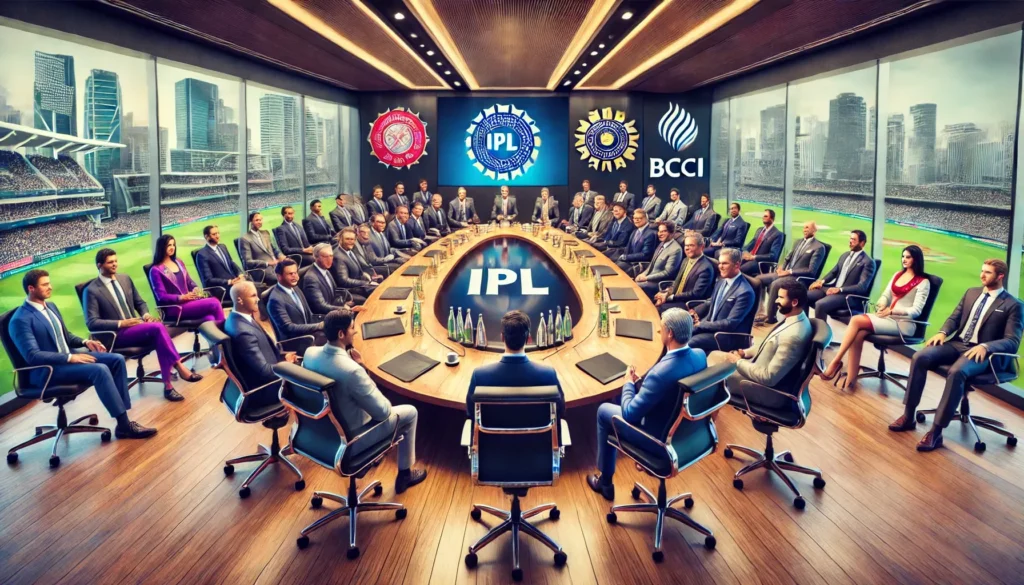
Division Over Mega Auction and Impact Player Rule
In a recent meeting held in Mumbai, IPL team owners and BCCI officials faced significant disagreements on several key issues, including the mega auction and the impact substitute player rule. This gathering aimed to align the teams on policies for the upcoming season but instead highlighted differing opinions on the future direction of the league.
Mega Auction Debate
The mega auction, planned before the 18th edition of the IPL, has been a subject of intense debate. The auction is a critical event where teams have the opportunity to build or rebuild their squads. However, opinions vary widely among team owners about how it should be conducted. Shah Rukh Khan of Kolkata Knight Riders and Ness Wadia of Punjab Kings were particularly vocal, with Khan favoring a system that allows more player retentions, while Wadia argued for fewer retentions to level the playing field. The use of the Right to Match (RTM) card, which permits teams to retain players by matching the highest bid during the auction, also sparked controversy. Some teams advocate for more RTM cards to retain key players, while others believe this should be limited to ensure fairness and competitiveness.
Impact Player Rule Controversy
The impact player rule, which allows teams to make strategic substitutions during a match, has also divided opinions. Parth Jindal of Delhi Capitals expressed strong reservations, suggesting that the rule could disrupt the traditional 11 versus 11 format and impact the development of all-rounders in Indian cricket. He noted that while the rule offers a platform for younger players to gain experience, it might also reduce the opportunities for players who excel in multiple aspects of the game. This sentiment was echoed by other owners who feel the rule might complicate team strategies and undermine the game’s integrity.
BCCI’s Role and Next Steps
BCCI Secretary Jay Shah confirmed that the board would consider all feedback from the meeting. The next step involves presenting these viewpoints to the IPL Governing Council for further analysis and decision-making. The council will evaluate the recommendations concerning player regulations, team compositions, and commercial aspects like central merchandising and licensing. Shah assured that the BCCI aims to finalize the rules and guidelines by the end of August, providing clarity and stability for all stakeholders involved.
Broader Implications and Stakeholder Views
Ness Wadia of Punjab Kings emphasized the need for decisions that favor “all stakeholders,” including fans, players, and teams. He highlighted the importance of having a balanced discussion with the BCCI to ensure that the league’s commercial and sporting aspects are both given due consideration. This holistic approach is crucial for maintaining the IPL’s position as one of the world’s premier cricket leagues.
Conclusion
The meeting underscored the diverse perspectives within the IPL community, reflecting the complexities of managing a multi-team, high-profile sports league. While the discussions did not yield a consensus, they provided valuable insights into the priorities and concerns of the franchise owners. As the BCCI moves towards finalizing the regulations, it faces the challenging task of balancing these varied interests to sustain the IPL’s competitive edge and global appeal. The outcomes of these deliberations will not only shape the immediate future of the league but also set precedents for how it evolves in the coming years.(Dubai7-Realmoneygame)

